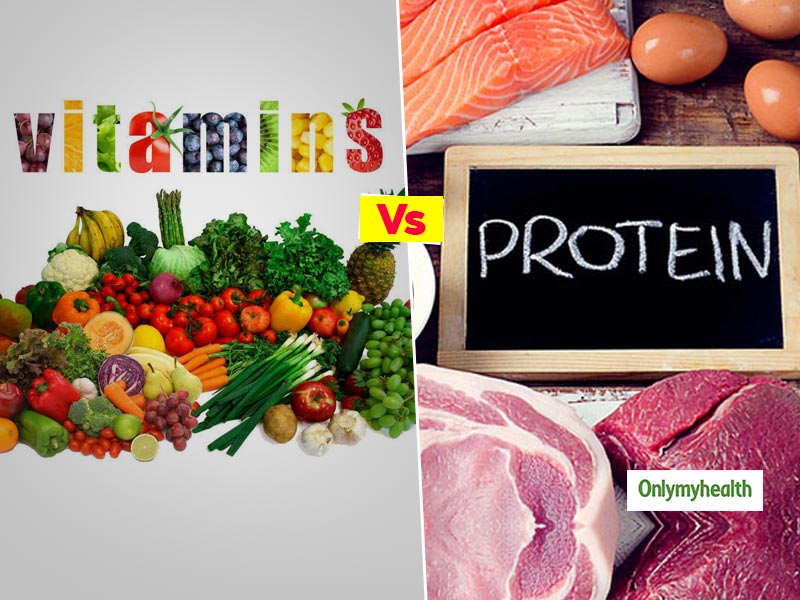
Vitamins and proteins are the two common nutrients that we all know. The other essential nutrients are minerals, fat, carbohydrates, etc. While we all know the individual functionality and importance of these nutrients, do you know the differences between them? These are a part of balanced diet which needs to be maintained for health and wellness. In this article we will talk about how vitamin and protein are different from each other and what’s more important and why.
You should note that lack of any one of the nutrients can also push you towards physical problems. Therefore it is necessary to have a balanced diet, which contains almost all the nutrients to prevent any kind of diseases. In addition, you can consult a doctor or dietician who can help you with the diet and supplement chart which is ideal for you.
Today here we are only talking about protein and vitamins. Proteins belong to macronutrients, while vitamins are classified as micronutrients. Let us know about these in depth.
Vitamins Vs Protein: What is the difference?
Vitamins

A small amount of vitamins is required for proper development of our body and to maintain overall health. There are 13 vitamins in total. They are divided into two categories based on how your body absorbed them. Water-soluble vitamins C and B vitamins are niacin, thiamine, riboflavin, vitamin B6, vitamin B-12, folate, biotin, and pantothenic acid. These vitamins are absorbed by water and enter the bloodstream directly. Then there are fat soluble vitamins. Vitamin A, vitamin D, vitamin E and vitamin K are fat soluble, which they need dietary fat to absorb properly. According to the Centers for Disease Control and Prevention, one and a half to two and a half cups of fruits and two and a half to four cups of vegetables should be consumed as per age.
Also Read: 9 Foods That Have More Vitamin C and Antioxidants Than Orange
Protein

Protein, as mentioned, belongs to macronutrients, as our body requires large amounts of it to function properly. It helps build our body, helps maintain fluid balance and keeps your immune system better. It also assists in the development, structure and function of cells, tissues, antibodies, hormones and enzymes. Typically, 0.4 grams of protein should be taken per body weight. Some of the best sources of protein are dairy products, meat, fish, legumes, nuts, seeds, and whole grains.
Also Read: Easy Homemade Protein Shakes And Bars Recipes For You
The conclusion

Both vitamins and protein are equally essential for our body and well-being. There cannot be any comparison between these two as absence or deficiency of any of these would pose serious impact on our health. Along with these two, we also need other macro and micronutrients. Each nutrient and their best sources should be consumed according to daily needs. You should maintain a balanced diet with recommended value of all the vital nutrients.
Read More in Healthy Diet
How we keep this article up to date:
We work with experts and keep a close eye on the latest in health and wellness. Whenever there is a new research or helpful information, we update our articles with accurate and useful advice.
Current Version